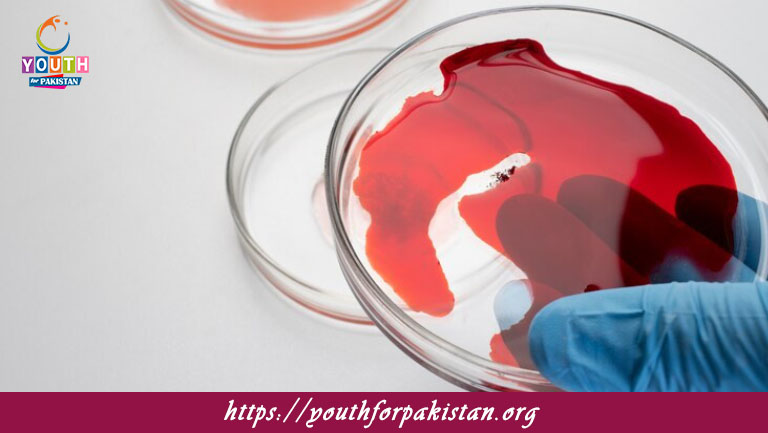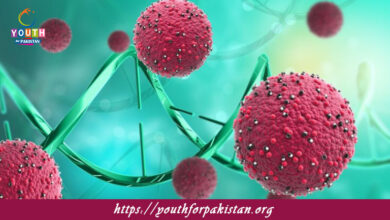Genetics Of Hemophilia MDCAT MCQs with Answers

Welcome to the Genetics Of Hemophilia MDCAT MCQs with Answers. In this post, we have shared Genetics Of Hemophilia Multiple Choice Questions and Answers for PMC MDCAT 2024. Each question in MDCAT Biology offers a chance to enhance your knowledge regarding Genetics Of Hemophilia MCQs in this MDCAT Online Test.
Hemophilia is primarily caused by a defect in:
a) Platelets
b) Red blood cells
c) Blood clotting factors
d) White blood cells
Which type of hemophilia is most commonly known as hemophilia A?
a) Hemophilia A
b) Hemophilia B
c) Hemophilia C
d) Hemophilia D
Hemophilia B is caused by a deficiency in which clotting factor?
a) Factor VIII
b) Factor IX
c) Factor X
d) Factor XI
Hemophilia is inherited in which pattern?
a) Autosomal dominant
b) Autosomal recessive
c) X-linked dominant
d) X-linked recessive
Which chromosome is associated with hemophilia?
a) Chromosome 1
b) Chromosome 7
c) Chromosome X
d) Chromosome Y
A male with hemophilia inherits the trait from his:
a) Mother
b) Father
c) Both parents
d) Grandparents
If a carrier woman for hemophilia has children with a normal man, what is the chance of their sons having hemophilia?
a) 0%
b) 25%
c) 50%
d) 100%
What is the chance of a daughter of a hemophiliac father and a carrier mother being a carrier herself?
a) 0%
b) 25%
c) 50%
d) 100%
A hemophiliac male will pass the allele for hemophilia to his:
a) Sons only
b) Daughters only
c) Both sons and daughters
d) Neither sons nor daughters
A female who is a carrier for hemophilia has a genotype of:
a) XhXh
b) XHXH
c) XHXh
d) XhY
In hemophilia, the deficiency of which clotting factor is involved in hemophilia A?
a) Factor V
b) Factor VII
c) Factor VIII
d) Factor IX
What type of inheritance pattern does hemophilia follow?
a) Codominant
b) Incomplete dominance
c) X-linked recessive
d) Mitochondrial inheritance
If a hemophiliac man and a woman who is a carrier for hemophilia have children, what percentage of their daughters will be carriers?
a) 0%
b) 25%
c) 50%
d) 100%
What is the probability that a carrier female will pass the hemophilia allele to her offspring?
a) 25%
b) 50%
c) 75%
d) 100%
Which of the following statements about hemophilia is true?
a) It affects both genders equally
b) It is more common in females
c) It affects males more frequently than females
d) It is not genetically inherited
Hemophilia B is also known as:
a) Christmas disease
b) Von Willebrand disease
c) Hemophilia A
d) Hemophilia C
In a family where the mother is a carrier for hemophilia and the father is normal, what is the probability that their child will have hemophilia?
a) 0%
b) 25%
c) 50%
d) 75%
Which of the following is NOT a symptom of hemophilia?
a) Excessive bleeding
b) Joint pain
c) Easy bruising
d) Muscle cramps
What type of genetic mutation is responsible for hemophilia?
a) Point mutation
b) Frame shift mutation
c) Inversion
d) Duplication
A woman with hemophilia has children with a normal man. What is the probability that her children will have hemophilia?
a) 0%
b) 25%
c) 50%
d) 100%
In which type of hemophilia is the clotting factor IX deficient?
a) Hemophilia A
b) Hemophilia B
c) Hemophilia C
d) Hemophilia D
If both parents are carriers for hemophilia, what is the probability of their offspring being affected?
a) 25%
b) 50%
c) 75%
d) 100%
A hemophiliac mother and a normal father have children. What is the probability that their sons will be affected?
a) 0%
b) 25%
c) 50%
d) 100%
A hemophiliac father will pass the hemophilia allele to:
a) His sons only
b) His daughters only
c) Both his sons and daughters
d) Neither his sons nor his daughters
A normal woman and a man with hemophilia have children. What is the probability that their daughters will be carriers?
a) 0%
b) 25%
c) 50%
d) 100%
The severity of hemophilia is often correlated with:
a) The amount of clotting factor present
b) The presence of symptoms in females
c) The gender of the affected individual
d) The family history of the disorder
Which genetic test can diagnose hemophilia?
a) Karyotyping
b) DNA sequencing
c) Chromosome banding
d) Protein electrophoresis
The treatment for hemophilia typically involves:
a) Gene therapy
b) Hormone therapy
c) Replacement of missing clotting factors
d) Antiviral medications
Hemophilia is less likely to be passed on if:
a) The mother is a carrier and the father is affected
b) Both parents are carriers
c) The mother is affected and the father is normal
d) The mother is a carrier and the father is normal
Which type of hemophilia is also called classical hemophilia?
a) Hemophilia A
b) Hemophilia B
c) Hemophilia C
d) Hemophilia D
Which factor is deficient in hemophilia A?
a) Factor VII
b) Factor IX
c) Factor X
d) Factor VIII
A carrier female for hemophilia has a:
a) XhXh genotype
b) XHXH genotype
c) XHXh genotype
d) XhY genotype
What is the inheritance pattern of hemophilia B?
a) Autosomal dominant
b) Autosomal recessive
c) X-linked dominant
d) X-linked recessive
Which of the following is a symptom of hemophilia?
a) Frequent nosebleeds
b) Hair loss
c) Hearing loss
d) Frequent urination
Hemophilia can be managed through:
a) Bone marrow transplants
b) Regular blood transfusions
c) Physical therapy
d) Regular administration of clotting factors
In a family where the father has hemophilia and the mother is normal, what is the chance their sons will have hemophilia?
a) 0%
b) 25%
c) 50%
d) 100%
In a family where both parents are carriers of hemophilia, what is the chance that their daughter will be affected?
a) 0%
b) 25%
c) 50%
d) 75%
Which factor is deficient in hemophilia C?
a) Factor VII
b) Factor IX
c) Factor XI
d) Factor VIII
A woman with hemophilia A has children with a normal man. What is the probability that her sons will have hemophilia?
a) 0%
b) 25%
c) 50%
d) 100%
A hemophiliac man and a carrier woman have children. What is the chance that their daughters will be affected?
a) 0%
b) 25%
c) 50%
d) 100%
What is the most common treatment for hemophilia?
a) Surgery
b) Blood thinners
c) Clotting factor replacement therapy
d) Painkillers
A hemophiliac female inherits the condition from:
a) Both parents
b) Her mother only
c) Her father only
d) Neither parent
Which of the following is true about hemophilia C?
a) It is X-linked recessive
b) It affects only males
c) It is caused by a deficiency in Factor XI
d) It is caused by a deficiency in Factor VIII
Which of the following tests can confirm a diagnosis of hemophilia?
a) Complete blood count
b) Liver function test
c) Clotting factor assay
d) Electrocardiogram
If you are interested to enhance your knowledge regarding Physics, Chemistry, Computer, and Biology please click on the link of each category, you will be redirected to dedicated website for each category.





